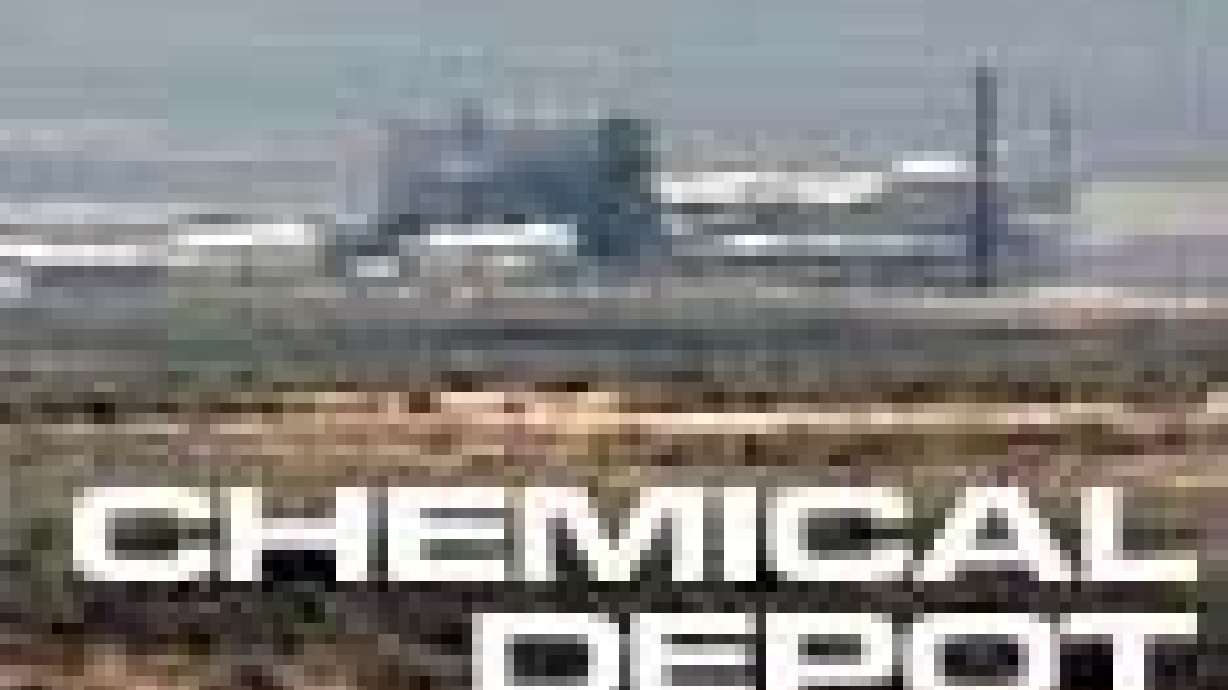Estimated read time: 2-3 minutes
This archived news story is available only for your personal, non-commercial use. Information in the story may be outdated or superseded by additional information. Reading or replaying the story in its archived form does not constitute a republication of the story.
John Hollenhorst ReportingNearly all the risk is gone from chemical weapons stored in Tooele County. That's the assessment of both the Army and its critics at a key turning point. The Army is preparing to finish off the incineration of the nation's largest stockpile of chemical weapons.
The risks were in the news constantly in the 1990s, worries about leaking nerve agents, fears about incinerating the deadly chemicals. In the years since, even critics admit 98 percent of the risk quietly went up the stacks and vanished.

At the giant incinerator plant surrounded by ghostly igloos filled with nightmare chemicals, workers are training to burn deadly mustard agent. It sounds scary, but compared to nerve agent, but it's not so bad.
Ted Ryba, Army project manager: "From the perspective of the public,it is much less of a risk."
It took nearly a decade, but the plant has now burned virtually all the nerve agent.
Col. Ray Van Pelt, Commander, Deseret Chemical Depot: "The greatest threat to the communities was the nerve agents."
Critics agree 98 percent of the risk is gone, but they insist that fumes from incineration pose unknown health risks.
Jason Groenewold, Healthy Environment Alliance of Utah: "We still believe that there are better and safer ways to destroy chemical weapons."
The plant is shut down for a year as workers prepare to shift from burning nerve agent to burning mustard agent. The project is years behind schedule, hundreds of millions over budget. But success is counted in very large numbers, too.
Col. Ray Van Pelt, Commander, Deseret Chemical Depot: "We started with 14,000 tons of agent and we're down to 7,000 tons of agent. And 99-percent of that is mustard."
There is one major complication. Some of the mustard containers have mercury in them and that will require filtration systems. Critics say instead of burning, the Army should use proven methods of chemical neutralization.
Jason Goenewold: "When there are technologies that can destroy this waste without releasing mercury, (it) really begs the question if it's the safest way to go."
But officials say the plant has been safe and will be safe, even as it produces results.
Col. Ray Van Pelt: "If we ever try to do production first and not keep safety as our highest priority, we'll get into trouble. And we're not going to allow that to happen."
The United States signed a treaty promising to get rid of all chemical weapons by 2007. The Army will never make that deadline, but the treaty allows an extension to 2012. The Army might make that deadline, at least in Utah.








